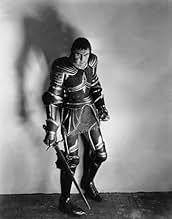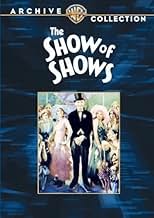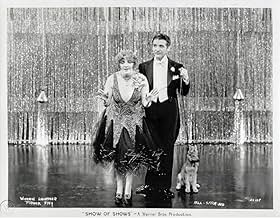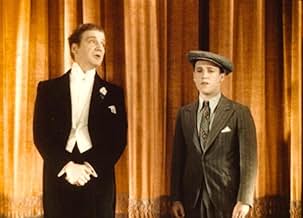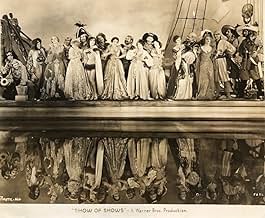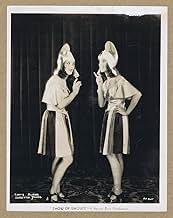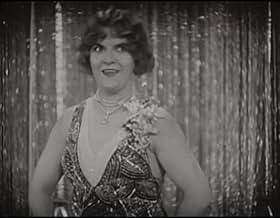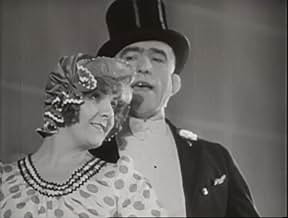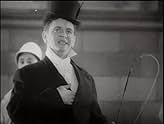It is very hard to rate this film. As entertainment value for 21st century viewers, it fails miserably. However, for the student of early sound films and history, it is a jewel. "Show of Shows" was a revue filmed to compete with MGM's successful "Hollywood Revue of 1929", which still survives intact complete with its Technicolor scenes.
The purpose of the all-star revue was to showcase a particular studio's silent stars in speaking roles, and show that they could make the transition. However, Warner Bros. seems to have forgotten this and employs many acts and stars that they didn't even have under long-term contract such as Ben Turpin, Lloyd Hamilton, Beatrice Lillie, and even a marching band. Meanwhile, their biggest talent - Al Jolson - is noticeably absent. Even at a high salary he could not be compelled to join in. Almost every act is overly long and the film plays like a dozen or so Vitaphone shorts strung together with no continuity. The finale is also overly long, but it is really enjoyable with all of its dance numbers.
The highlights of the film are two numbers from Winnie Lightner - "Pingo Pongo" and "Singin in the Bathtub", a couple of numbers with Nick Lucas, John Barrymore performing Shakespeare, and the Chinese Fantasy "Li Po Li" with Nick Lucas and Myrna Loy. This last number is the only part of the film that survives in Technicolor, and it really is quite attractive. Reasonably enough, the players in these good acts were long-term Warner Bros. stars so perhaps the director knew how to play to their strengths since he was familiar with them.
This film acts as a snapshot at an odd point in film history - the year 1929, which was the bridge year between two eras - the silent and sound eras, and the roaring 20's and the Great Depression. Just two years later this same film would have had an entirely different cast, as Warner Bros. would abandon its silent era stars and the stars they hired just to produce the early musicals in favor of those stars that gave Warner Bros. its distinctive urban look and feel - James Cagney, Joan Blondell, Edward G. Robinson, and others.

